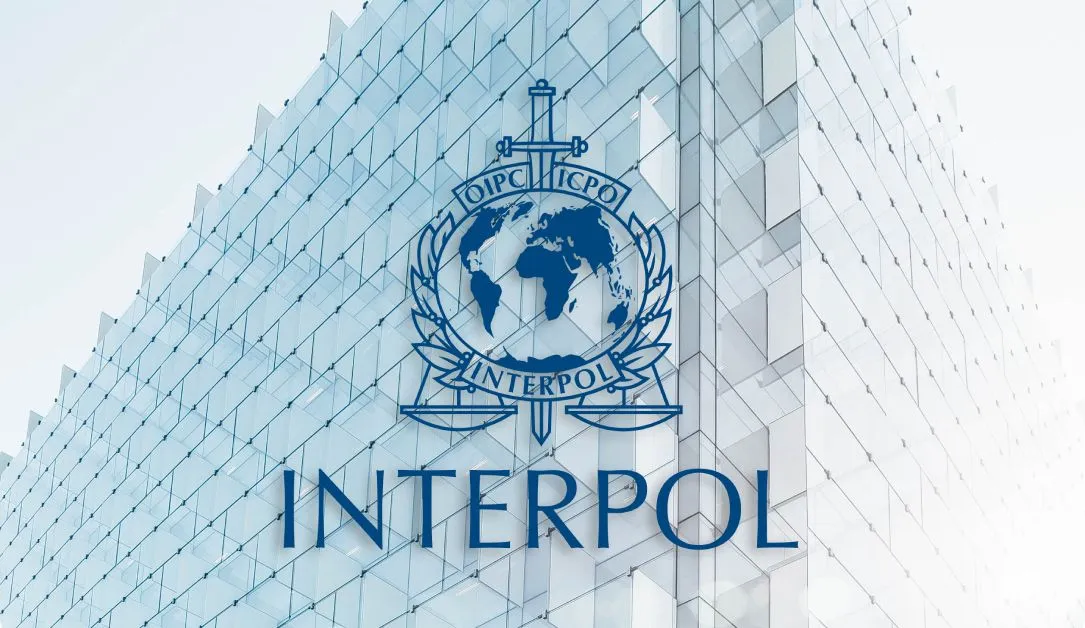Interpol (International Criminal Police Organization) is an international law enforcement organisation that facilitates cooperation between police forces from different countries. Its primary goal is to assist in combating international crime and maintaining public order. One of the key tools Interpol uses in its operations is the Interpol wanted list. This includes individuals who are suspected or accused of committing serious crimes on an international scale.
The INTERPOL Wanted List refers to the database maintained by INTERPOL (the International Criminal Police Organization) to support international law enforcement efforts. This database comprises information on individuals who are wanted for prosecution or have been convicted of serious crimes by the judicial systems of INTERPOL’s 195 member countries. It serves as an essential tool for facilitating international cooperation in locating and apprehending fugitives.
Contrary to popular belief, INTERPOL does not maintain a traditional “wanted persons list” akin to the "most wanted" lists found in some national agencies. Instead, INTERPOL disseminates Red Notices, which act as alerts to member countries about individuals wanted for arrest and potential extradition.

Interpol red notices are an official alert issued by Interpol at the request of a member country that is seeking to locate and provisionaly arrest a person pending extradition. The primary aim of such a notice is to inform Interpol's member countries that the individual should be arrested for the purpose of extradition. According to Article 3 of Interpol's constitution, the organisation is prohibited from intervening in matters of a political, military, religious, or racial nature. Red Notices are not an arrest warrant, and can only be issued for crimes that fall under international jurisdiction.
Interpol Red Notices include critical details about the wanted person, such as:
After the publication of a red notice, the information is disseminated among the member states of Interpol. It's important to note that each state decides independently what actions will be taken regarding the individual mentioned in the notice. This can depend on national extradition laws, as well as international treaties and agreements, such as the European Convention on Extradition and the Vienna Convention on the Law of Treaties.
Searching the INTERPOL Wanted List is an essential step for individuals, legal professionals, and law enforcement agencies to determine if a person is the subject of a Red Notice or international arrest warrant. This process can help identify whether an individual is wanted for serious crimes or is under international monitoring. Here’s a step-by-step guide on how to conduct a search:
Visit INTERPOL’s Official Website
The simplest way to search for publicly available interpol notices is through INTERPOL’s official website. INTERPOL maintains a public database of Red Notices, which can be accessed without special permissions.
While INTERPOL’s website provides access to some Red Notices, not all of them are publicly disclosed. Many Red Notices are kept confidential and are only shared with member countries and authorized law enforcement agencies.
The CCF is an independent body that reviews requests to INTERPOL. For that you should prepare a written request and include personal details like full name, date of birth, nationality, and other relevant identifiers. Add a copy of a government-issued ID or passport to verify your identity. The request to the CCF should be sent through the appropriate channels specified on INTERPOL’s website. The CCF will review the data and provide a response, which may include confirmation of whether your data exists in INTERPOL’s records and any actions to take.
The primary purpose of the INTERPOL Wanted List, represented by Red Notices, is to facilitate the provisional arrest of individuals wanted for serious offenses. These notices help coordinate efforts among national police forces and judicial authorities to bring fugitives to justice. The types of crimes for which Interpol Red Notice is issued include, but are not limited to:
Each Red Notice undergoes review by INTERPOL to ensure compliance with its regulations and that it does not violate human rights or the organization’s principle of political neutrality.
Being featured on the INTERPOL Wanted List, particularly through an INTERPOL Red Notice, can have profound and far-reaching consequences for individuals. The implications extend beyond legal challenges to affect numerous aspects of personal and professional life. Below are detailed descriptions of key impacts:
To initiate the removal process, an individual must submit an official request to the Commission for the Control of INTERPOL’s Files (CCF). This independent body reviews complaints about INTERPOL’s data and ensures compliance with its rules.
There are several grounds for the removal of an Interpol arrest warrant:
The process of red notice removal can take several months, and even upon its successful completion, there may be difficulties with fully restoring one's reputation. However, in the event of a favourable decision by the Commission, the red notice is cancelled, and information about the search is removed from international databases.
It's important to consult a solicitor who specializes in Red Notice, international criminal law and has experience dealing with serious crime tribunals, organized crime cases, and international law enforcement coordination.
INTERPOL lawyers possess specialized knowledge of international criminal law, INTERPOL’s rules, and the procedures governing Red Notices. They understand the nuances of cross-border legal frameworks and can effectively navigate the unique challenges that arise in these cases. Their expertise ensures that your case is handled according to the highest standards and that your rights are protected throughout the process.
INTERPOL lawyers conduct a comprehensive analysis of the circumstances surrounding the issuance of the Red Notice. They assess the legality and validity of the notice, identifying potential violations of INTERPOL’s principles or human rights laws. With this information, they craft a tailored defense strategy aimed at challenging the Red Notice and seeking its removal.